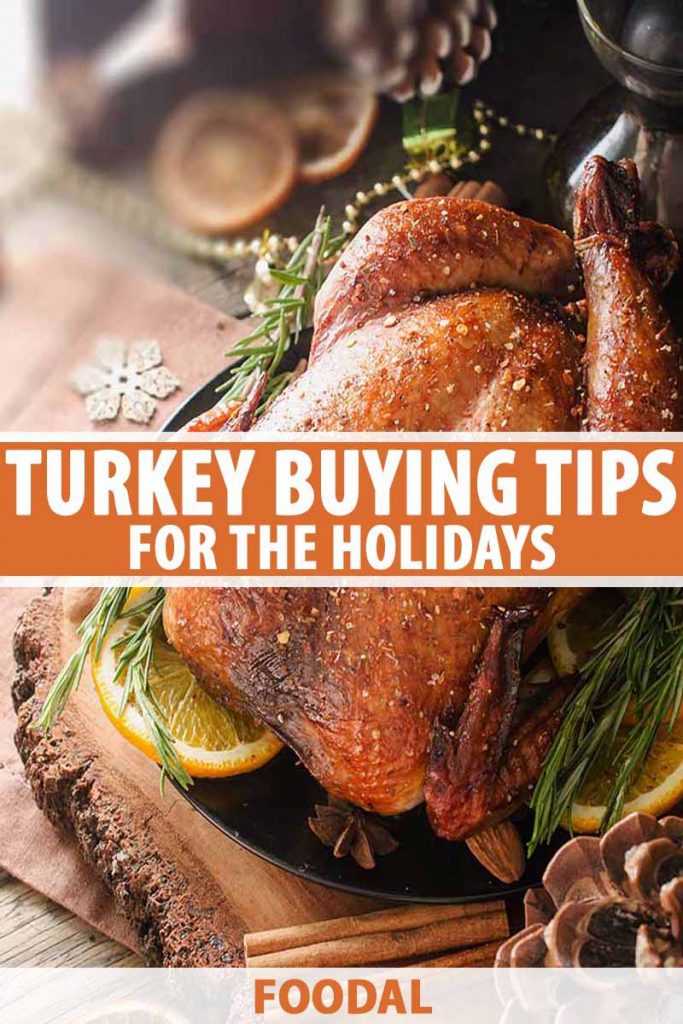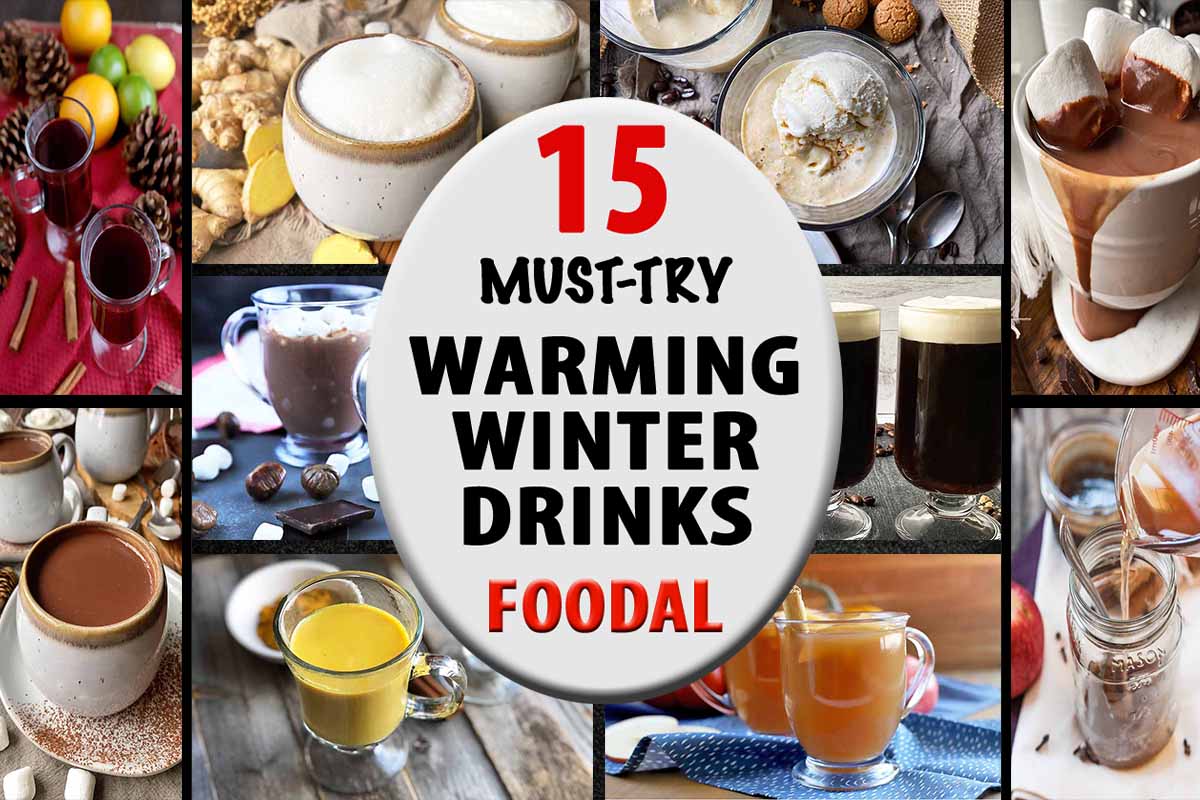Who cooks the turkey for the holidays in your family? You? Someone else?
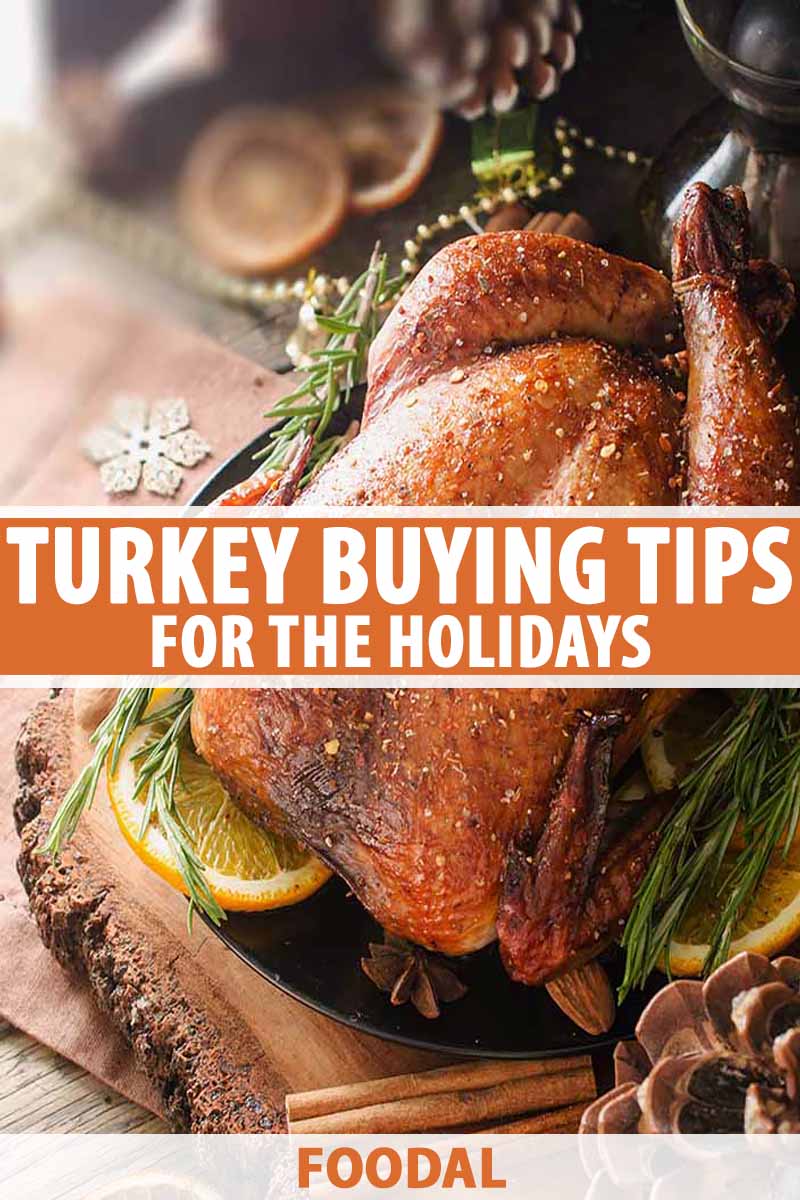
Me? Eh, not so much. I don’t really have too much experience with roasting turkeys or chickens.
I’ve always been the type of person who, after a long day at work, would buy one of those cheap, pre-cooked rotisserie chickens from the grocery store, and rip it apart with my bare hands while it’s still steaming hot as soon as I got home.
And during most holidays, someone else would usually cook the bird, year after year: My father, excitedly cooking it to crispy perfection in his epic deep fryer. My mother, expertly roasting it in the oven slathered with butter and fresh herbs.
But I vow to cook my own whole bird (at least once…) for the upcoming holiday season! Who’s with me?!
Here goes…
But before deciding what delicious cooking preparation to choose, and well before figuring out what medley of seasonings to use, there is one important question to answer:
What kind of turkey do you choose?
There are a handful of available options you can buy, all based on your own personal preferences and needs.
This guide serves as a helpful primer to all the most popular kinds of turkey – take a look at our round up, to find out which beautiful bird is right for you!
Kosher
A kosher turkey must be prepared observing Jewish dietary laws and standards.
In addition to a strict inspection and meticulous slaughtering practices, Jewish law prohibits the consumption of the lifeblood of the animal. Therefore, the blood in all kosher meat, including turkey, must be removed thoroughly and respectfully.
The process involves soaking, salting, washing, and drying the meat for different amounts of time until no blood remains. The poultry is now clean, pure, and wholesome to consume by kosher standards.
The packaging will be labeled with the appropriate kosher identifications.
Natural
A natural poultry item will have no artificial flavors, colorings, ingredients, or preservatives. No artificial or synthetic ingredients were used to process the meat.
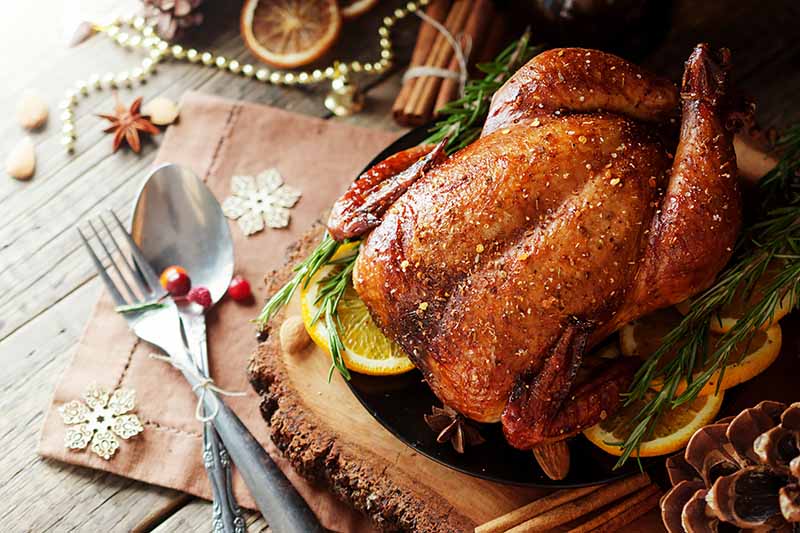
Antibiotics can be used – these are not prohibited in order to be labeled as natural.
Federal regulations prohibit the use of hormones in raising poultry, as well as pork, goats, veal, and bison. So no matter what, specifically referenced on the label or unlabeled, your turkey will have no added hormones.
Organic
Any meat you buy that is organic must come from turkeys that have been raised, fed, butchered, and manufactured to specific, approved standards verified by the USDA to ensure the most environmentally sustainable production.
Agricultural chemicals and toxic persistent pesticides are prohibited. The feed they are given cannot contain any GMO’s (genetically modified organisms), and they must be raised with no antibiotics, and no added growth hormones. The birds also must be given fresh air and outdoor access.
Happy, healthy, and slightly more expensive than your other options!
You will need to pay more for an organic turkey, but the final taste, texture, and the reassurance of purchasing a quality product are all serious considerations for choosing to buy organic.
Pasture-Raised
Wish you could be free as a bird now?
Pasture-raised birds live up to the legendary lyrics of Lynyrd Skynryd – they have access to the outdoors and are allowed to move freely in an enclosed yard.
With the extra movement, their muscles become more developed, increasing blood flow. This causes the meat to be darker, more complex, and more flavorful.
The focus of pasture raising turkey is not just for the flavor – the health and well-being of the animal is also of major importance.
Diestel Family Ranch, a family-run, 4th-generation farm based in the Sierra Nevada Foothills, focuses its business practices on sustainably raising a variety of animals, including pasture-raised turkeys.
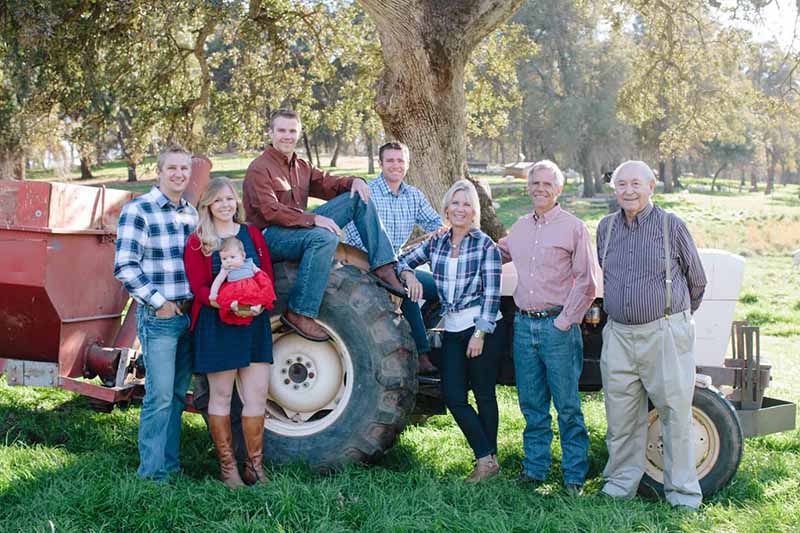
Committed to a “balance between nature and farming,” Diestel’s pasture-raised and slow-grown turkeys roam freely on the family’s home ranch, continuously rotated with chickens, goats, sheep, and hogs.
Heidi of the Diestel family explains that this traditional farming method, called polyculture farming, ensures that “the soil’s nutrients are replenished by raising diverse species on the land. We use reclaimed water, along with our own structured compost to support the health of the pastures that help these turkeys thrive. By improving soil fertility, our composting program also removes the need for artificial fertilizers and chemicals, and reduces water usage and waste in landfills.”
With a strictly monitored environment, and a strict diet (low-fat, 100% vegetarian), Diestel’s pasture-raised birds are the first to be rated GAP 5, the Global Animal Partnership’s highest rating in a 5-Step Animal Welfare Rating Program.
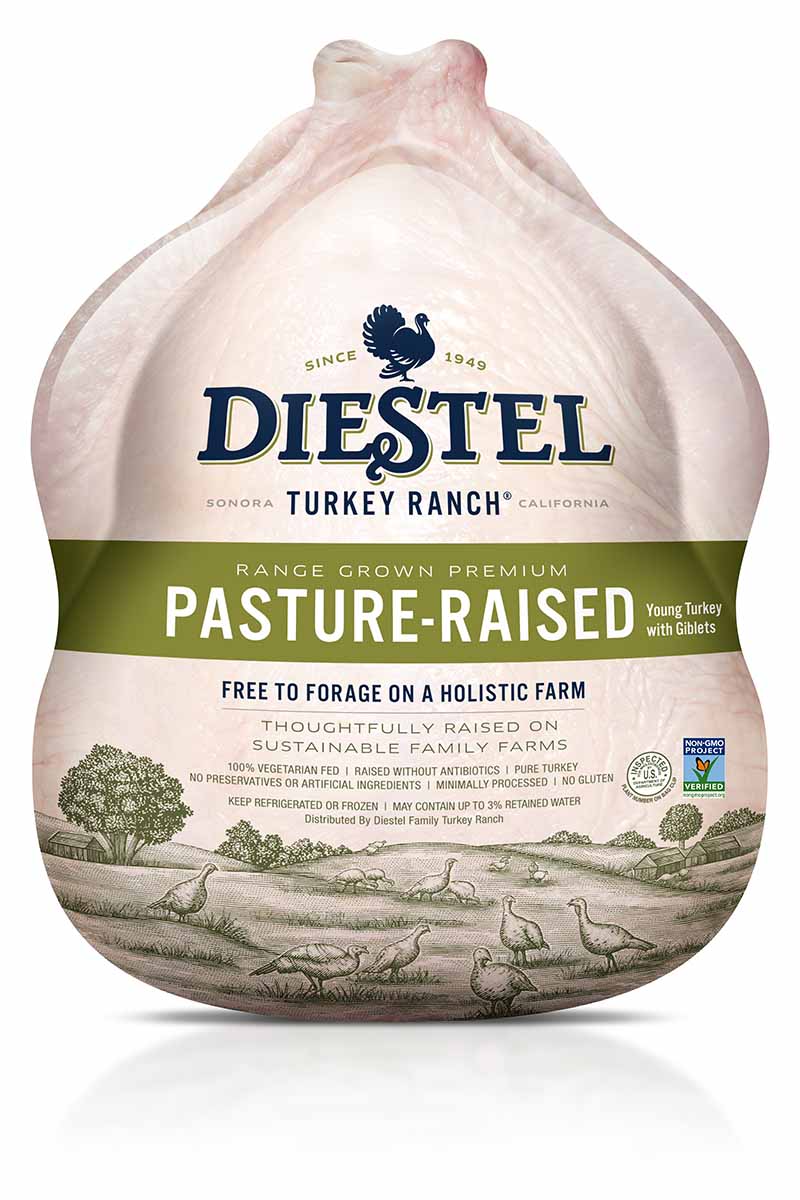
“By looking at the health of animals, their living conditions, and their emotional well-being, the ratings help consumers understand how their food was raised,” Heidi says.
So, if you’re hoping to get a sustainably raised, healthy, and happy bird, consider purchasing from a company that focuses on pasture-raised birds with a healthy diet and lifestyle.
Heritage
A heritage breed of any animal must have distinctly pure genetic traits, usually traced back to original descendants, and must be raised on an organic and sustainable farm.
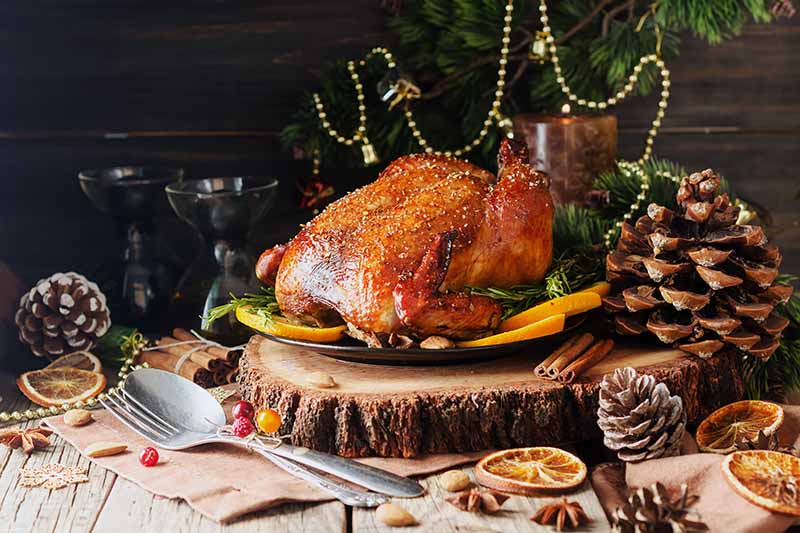
Heritage turkeys are allowed to fly, forage, and roam freely, and they are permitted to breed on their own. Like pasture-raised turkeys, their meat will be darker and more intense due to their free movement.
Basted/Injected/Enhanced
A whole turkey with any of these labels is injected or marinated with a solution containing a range of added ingredients: butter (or other edible fat), broth, stock, water, flavor enhancers, or salt solutions.
The maximum added weight cannot exceed approximately 3% with the solution, according to the USDA.
While flavor and moisture content can be increased with this option, you inevitably lose the natural qualities and flavors of the cooked meat.
Fresh or Frozen?
Probably one of the toughest decisions to make when buying is to get it fresh or frozen. What to do? Let’s go over both options below.
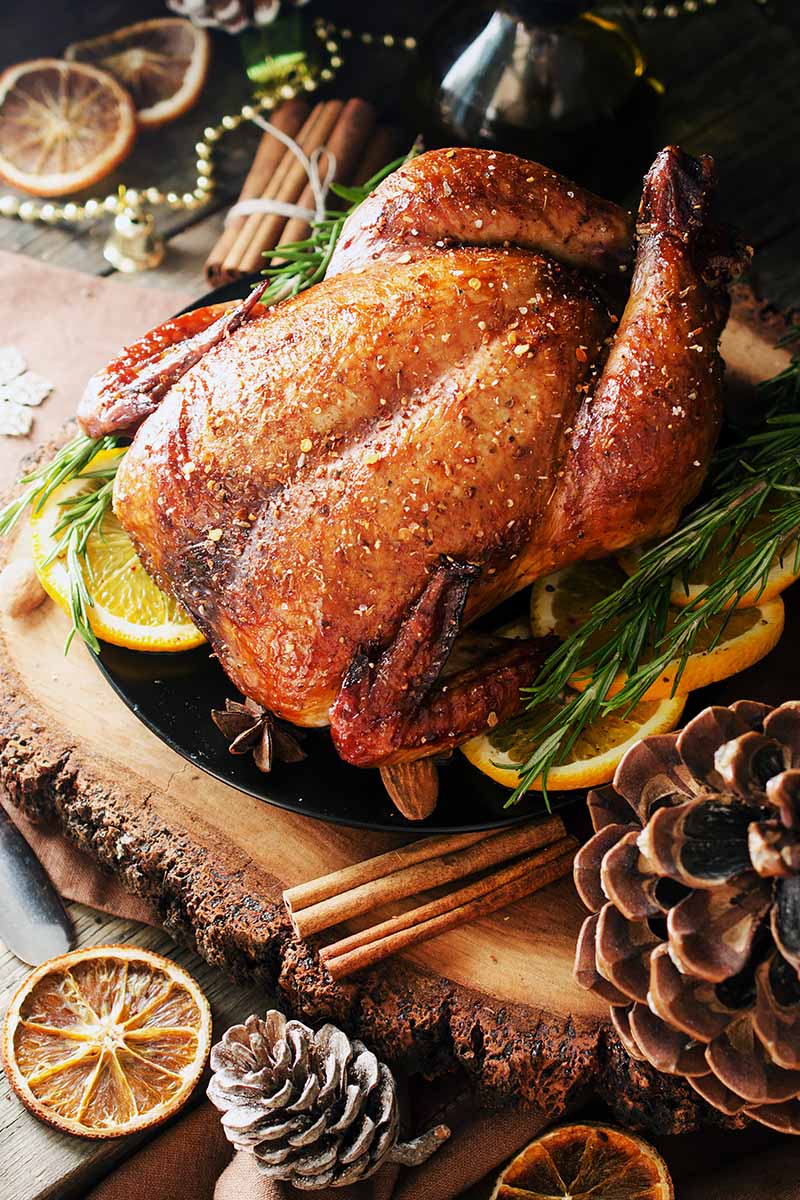
Team Fresh
Go fresh if you want a bird that has not been manipulated by preservation methods.
According to the USDA, a turkey can only be labeled as fresh if it has never been stored at or below 26°F – it will never have been frozen. It also cannot be injected, basted, or marinated with any additional ingredients.
Pure, fresh goodness!
This is also the option for you if you prefer to cook your bird as soon as possible. Like any fresh item, it should be prepped, cooked, and consumed shortly after purchasing. Buy your bird just a day or two before you plan to cook it.
Team Frozen
Go frozen if you prefer to prep in advance, want to purchase your bird ahead of time, hope to beat the holiday shopping crowds, and to guarantee you have a bird before there’s a shocking shortage of poultry at your grocery store!
You’ll love the security of knowing your main course is already at home. You can purchase it months in advance, as long as your freezer has adequate space and maintains a consistent temperature.
But consider this very important piece of advice: remember to save enough time to properly thaw it before cooking!
A hefty bird like a turkey does need a significant chunk of time to thaw. You need one full day of thawing in the refrigerator for every four to five pounds, according to the USDA.
What Will You Choose?
No doubt about it, this is a serious decision to make for the main course of some major holiday feasts!
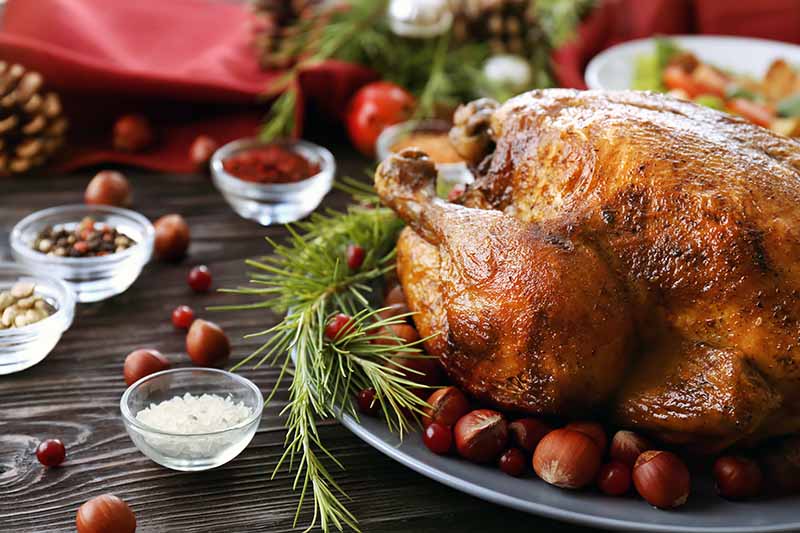
With our guide, we hope to provide you with a little more clarification on some of the basic options you have to consider.
And once you make your decision, let us help you with the next step: deciding on what recipe to use!
Here are some mouthwatering ideas for you to try:
- Sage-Rubbed Spatchcocked Smoked Turkey
- Dry-Brined Turkey
- Spatchcocked Roasted Lemon Turkey (the original recipe is for chicken, but use your turkey instead!)
Is spatchocking a new prep technique for you? Learn how do master it, with our step-by-step tutorial!
What gobbler do you usually like to buy? Do any of these other options intrigue you, in terms of what to purchase for this year’s holiday cooking? Let us know in the comments below!
Product photos via Diestel. Uncredited photos: Shutterstock. With additional writing and editing by Allison Sidhu.
About Nikki Cervone
Nikki Cervone is an ACS Certified Cheese Professional and cheesemonger living in Pittsburgh. Nikki holds an AAS in baking/pastry from Westmoreland County Community College, a BA in Communications from Duquesne University, and an MLA in Gastronomy from Boston University. When she's not nibbling on her favorite cheeses or testing a batch of cupcakes, Nikki enjoys a healthy dose of yoga, wine, hiking, singing in the shower, and chocolate. Lots of chocolate.

